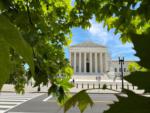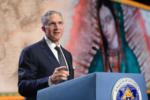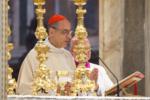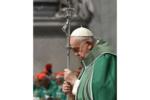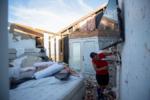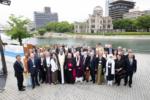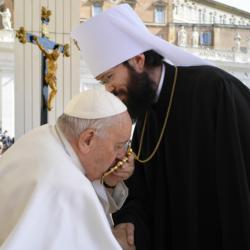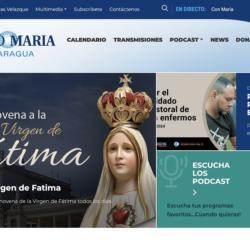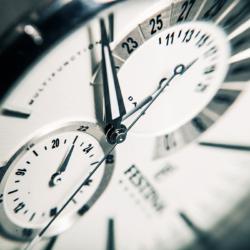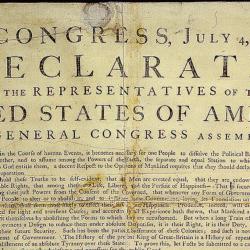Synod working document offers inspiration, points to journey ahead, say experts
(OSV News) -- The newly released working document for the Synod on Synodality offers inspiration, while revealing the journey is far from over in realizing the fullness of the church's mission, experts told OSV News.
On July 9, the Vatican's General Secretariat of the Synod released the working document for the second session of the Synod on Synodality, which takes place at the Vatican Oct. 2-27. The document centers on the upcoming discussions on the topic of "how to be a missionary synodal church" -- part of the synod's governing theme of "communion, participation and mission."
The working document, consisting of five sections, begins with a passage from Isaiah 25, in which the prophet presents what the document calls "the image of a superabundant and sumptuous banquet prepared by the Lord on the mountaintop, a symbol of conviviality and communion intended for all peoples."
After an introduction that recaps the timeline of the synod, it outlines "the foundations of the vision of a missionary synodal Church," noting that it does not intend to provide "a complete treatise on ecclesiology" but rather a reflection "placed at the service of the particular work of discernment" for the synod's upcoming 2024 session in Rome.
The document then examines the relationships that sustain the church; the paths for nurturing such relationships, particularly formation, discernment, participatory decision-making and transparency; and the concrete contexts in which such relationships -- ultimately nourished by the Eucharist -- are found. The document also makes clear that "synodality is not an end in itself" or "an alternative" to the church's communion with the triune God through the salvific work of Jesus Christ; rather, it is a way of living and working ("modus vivendi et operandi") together as the church.
The text is an invitation "to reflect deeply upon the grace of our relationship to God, the Most Holy Trinity, and to one another as incorporated into Trinitarian life in Christ by the Spirit," said Bishop Daniel E. Flores of Brownsville, Texas, chairman of the U.S. Conference of Catholic Bishops' Committee on Doctrine and lead coordinator for the synodal process in the U.S., in a July 9 statement issued by the USCCB.
Bishop Flores said that "these relations are practically lived out in our local communities and in the universal Church and are at the service of the mission.”
"The quality of our relations, rooted in charity, their theological and practical shape at all levels, are at the heart of synodal discernment and renewal in the church," he added.
At the same time, the working document depicts "a typically abstract, high-brow summary of what should happen ideally, with little mention of what needs to happen developmentally for Catholics to become capable of functioning as a community at such a high level," said Sherry Anne Weddell, co-founder and executive director of the Colorado-based Catherine of Siena Institute.
"It is a vision that would require great spiritual maturity of the majority and a much higher level of trust than is present at the moment," Weddell, author of "Forming Intentional Disciples: The Path to Knowing and Following Jesus," told OSV News.
In particular, Weddell reflected on several passages in part one of the working document (sections 27-31) that examine the charisms and ministries of the faithful. She noted that "the implementation of all that the church teaches and the synod is calling us to regarding our co-responsibility -- as ordained and lay Catholics -- for the church's mission requires a higher level of personal and communal spiritual maturity than is true at present."
"Answering the calls of God that come with these wonderful gifts is a job for spiritual adults," Weddell said. "But most of our baptized people are still stuck in a spiritually passive infancy."
Based on some three decades of experience in helping Catholics discern such gifts, Weddell estimated that "roughly 98% of all the charisms given to baptized Catholics are not yet being discerned and exercised."
The main obstacle is that "most of our baptized people are not yet disciples and so their charisms -- while objectively present -- have not yet begun to emerge and manifest in real life," she said.
But "when Catholic parishes and dioceses evangelize their own, the charisms just begin to pop," Weddell said. "Ordinary Catholics start to undertake the most amazing initiatives and become the unexpected answer to so many people’s prayers."
Jesuit Father James Martin, editor-at-large of America magazine, told OSV News the working document "sets out a broad plan for real listening, dialogue and progress in the church in the coming years.
"It proposes a truly 'synodal' church, that is, one that listens to all voices and discerns the invitation of the Holy Spirit in those voices," he said. "As such, it should be a great sign of hope for those who have not felt included, welcomed or heard."
Addressing that call to inclusion, Charleen Katra, executive director of the National Catholic Partnership on Disability, told OSV News that she and her team "greatly appreciate the emphasis this document raises regarding the need for accessible liturgies."
Commenting on section 12 -- which urges "the renewal of liturgical and sacramental life, starting with liturgical celebrations that are beautiful, dignified, accessible, fully participative, well-inculturated and capable of nourishing the impulse towards mission" -- Katra told OSV News that "for persons with disabilities to exercise his or her baptismal call and co-responsibility in the life of the church, it is imperative that the source and summit of our faith -- the Eucharist -- be fully accessible to all.
"When liturgical planning takes into account the needs of persons with autism, Down syndrome, mental illness, etc., an increase of sensory-friendly Masses being offered in parishes across the nation will become the norm," she said. "Such advancements extend an authentic welcome to a community that is often underrepresented due to inaccessibility in parish life. It also supports the many gifts of persons with disabilities to bless and evangelize faith communities."
Katra also spoke regarding section 34, which proposes the creation of "a recognized and properly instituted ministry of listening and accompaniment."
"Accompaniment takes time," said Katra. "And creating opportunities for persons with disabilities to be engaged in the life of the church takes intentionality as adaptations are often needed. All efforts are worthwhile as every effort honors the sacred dignity of the individual person."
She added that "an increase of formation of clergy, religious, and lay ministers in disability and mental health ministry would greatly benefit the entire church."
In the USCCB's July 9 statement, Bishop Flores said that the document is not simply for those who will be at the synod's next session in October.
"I encourage everyone to read and discern this document within your community in conversation with the insights and fruits of earlier local, national, and continental synodal consultations," he said.
- - - Gina Christian is a multimedia reporter for OSV News. Follow her on X (formerly Twitter) @GinaJesseReina.- - - NOTES: The synod's working document can be found here: https://press.vatican.va/content/salastampa/en/bollettino/pubblico/2024/07/09/240709d.html.



